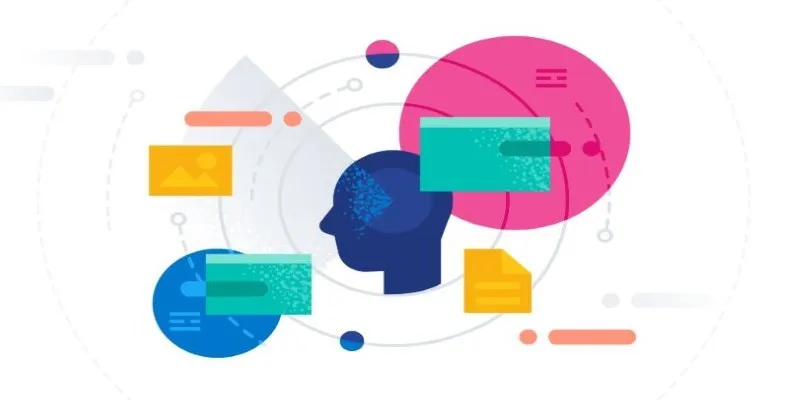You’ve probably visited a website and felt intrigued but hesitant—perhaps unsure about delivery options or product compatibility. With no one to ask, you left. This hesitation, repeated by thousands, adds up to silent lost sales. This is where AI chatbots come into play—not the outdated, robotic kind, but intelligent, fast systems designed to engage and convert.
These AI chatbots don’t just answer questions—they guide users toward action. In this article, we’ll explore how AI chatbots facilitate real-time conversations, reduce friction, and streamline customer support automation, transforming casual interest into actual sales—all without making customers wait.
Real-Time Conversations That Reduce Friction
When a potential customer visits your site, time is of the essence. If they’re confused or hesitant, every second counts. Traditional support models—emails or phone numbers—take too long, leading to abandonment of transactions.
AI chatbots act instantly. They engage the visitor at their point of confusion and keep the conversation moving. If someone is unsure about product compatibility or shipping details, the bot doesn’t just answer—it nudges them toward buying, shortening the gap between interest and action. That’s not just service; that’s sales support in disguise.
Modern chatbots don’t rely on rigid decision trees. They’re trained on large data sets and can understand intent, even if the query is vague or poorly worded. This flexibility makes them far more effective than static FAQs or scripted replies. For e-commerce, this real-time response directly improves conversions. When someone receives instant, clear answers, they’re more likely to buy—and buy with confidence.
The best part? These bots are tireless. They manage hundreds of conversations simultaneously, without breaks, sleep, or shift changes. Whether it’s noon or midnight, the experience is consistently fast, responsive, and tailored.
Personalization That Feels Natural
One of the most impressive advancements in customer support automation is how AI chatbots personalize interactions without sounding mechanical. It’s not just about awkwardly using someone’s first name. It’s about delivering recommendations, answers, and follow-ups based on actual behavior.

For instance, if a user lingers on a product page or adds items to their cart without checking out, the bot can jump in—not with a generic “Can I help you?” but with something more precise: “I noticed you’re checking out the 256GB model. Would you like to know how it compares to the 512GB?” This level of detail makes it feel like someone is genuinely helping, not just selling.
This approach works across industries. In real estate, AI chatbots can guide users through available listings. In healthcare, they can triage questions before a patient even speaks to a representative. In tech retail, they can recommend the right accessories based on the main product chosen. All of this occurs based on user data, patterns, and real-time inputs—without ever involving a human rep.
The key is balance. The chatbot guides the customer without being pushy. It suggests rather than demands. And if the customer needs a human, it can seamlessly hand over the chat. However, in most cases, that handover isn’t even necessary. The chatbot is capable enough to complete the sale on its own.
Reducing Operational Load While Improving Quality
Customer service can quickly drain resources. The more support your business requires, the more people you have to hire, train, and manage. Even then, response times lag—especially during busy hours, and customers notice.
AI chatbots alleviate this load by handling routine tasks: tracking orders, resetting passwords, and answering shipping questions. These aren’t emotional conversations; they just need fast, accurate answers—and that’s exactly what chatbots deliver.
By eliminating these common tasks, AI frees your human reps to focus on complex or sensitive issues that truly require human judgment. It creates a balance: automation handles volume, while people handle nuance.
This setup improves more than speed; it enhances the quality of your support. Chatbots don’t burn out. They don’t get irritable after a long day. Whether it’s their first chat or their hundredth, the response remains sharp and consistent. And when connected to your systems—CRM, inventory, payments—they pull live data to answer questions instantly.
The outcome? Fewer support tickets, quicker resolutions, and more satisfied customers. More importantly, it nudges visitors closer to purchase. When doubts are addressed quickly and clearly, hesitation vanishes—and the sale becomes much more likely.
Insights that Drive Smarter Business Decisions
Every conversation with a customer is a chance to learn. But when thousands of those conversations happen daily, human teams can’t analyze them all. That’s where AI becomes more than a chatbot—it becomes a tool for insight.
By reviewing chat logs and extracting patterns, businesses can identify what customers are consistently asking. Are people confused about your return policy? Are they frequently searching for specific product bundles? Do they hesitate during checkout due to unclear shipping costs?

AI can surface these patterns automatically, highlighting friction points in your sales funnel. And the best part? It doesn’t just show the problem—it provides data to solve it. You can adjust product descriptions, tweak UI design, or build clearer pricing pages, all based on real-time customer inquiries.
This feedback loop sharpens your entire business. From marketing to product to sales, you’re not guessing. You’re responding to live data. And the source of that data? Conversations initiated by AI chatbots.
Even better, as the bot continues to learn from these conversations, it becomes smarter, adapts, and becomes more effective at converting hesitant visitors into paying customers. That feedback cycle is continuous, always refining itself to do one thing better—convert.
Conclusion
AI chatbots are quietly reshaping how businesses handle customer interactions. They provide instant, accurate responses, reduce support load, and smoothly guide users toward purchase decisions. With personalized conversations and continuous availability, they transform routine queries into conversion opportunities. Customers gain clarity; businesses achieve efficiency and increased sales. It’s not just about automation—it’s about making every interaction count. In a world where attention is short and expectations are high, AI chatbots serve as silent, reliable sales assistants who are always ready, always helpful, and always driving results.
 zfn9
zfn9























